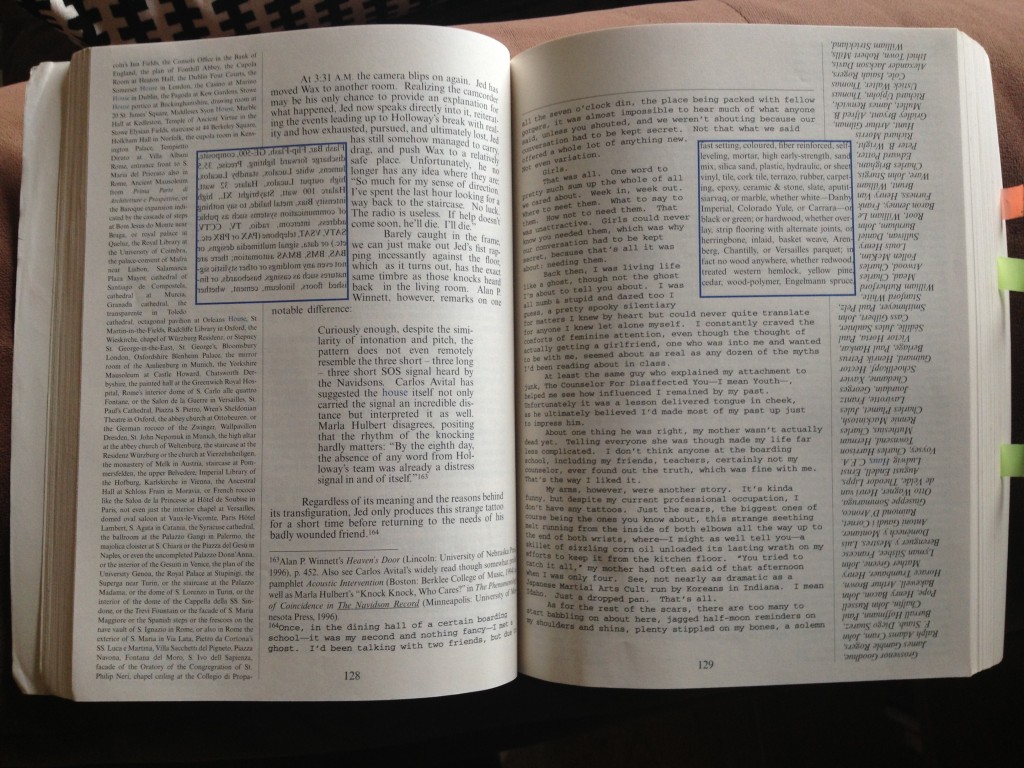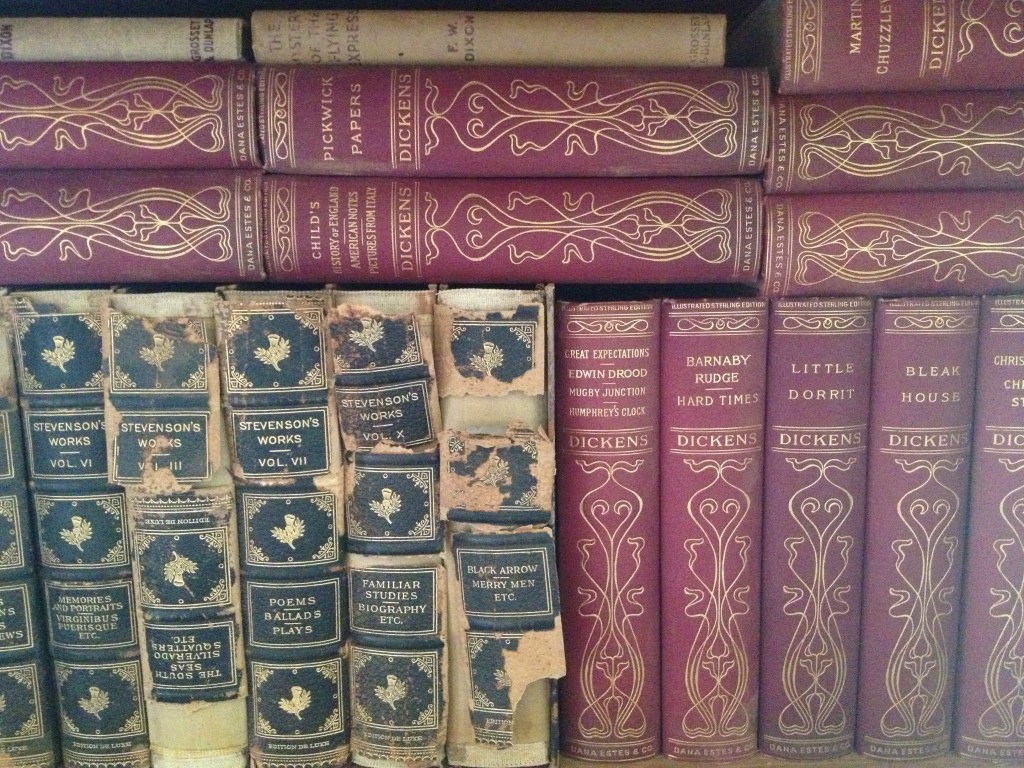I’m floored and very pleased by Amazon’s recent announcement of the Kindle MatchBook program. This is obviously a big deal for current Kindle customers and for ebook readers in general, but I think it’s an even bigger deal for those who haven’t yet “gone digital.” Only time will tell, but I think this will disrupt the ebook market even more than tech pundits are currently speculating, especially if iBooks doesn’t follow suit (and I don’t expect that they will).
Without breaking any NDA rules or incurring the wrath of too many former employers, I can safely share with you that I worked a few short-term contracts within Kindle, enough to have a basic understanding of how a lot of ebooks are “made.” And, consistent with everyone’s assumptions, digitizing a book, while not trivial, is quite a bit simpler than the physical print book production process, especially since you’ve basically already generated all of the assets for the ebook in the process of creating the physical book. I don’t know the numbers on exactly how much pricier it is to publish a print book than to publish an ebook, nor could I share them if I did, but suffice it to say that for all typical scenarios, for publishers and indies alike, publishing an ebook will always end up being way the heck cheaper than publishing its physical counterpart.
It has consistently blown my mind that this huge publishing cost disparity was not deeply discussed in the whole DOJ case about Apple and Amazon and The Big 6-now-5 and ebooks and price-fixing. Since the advent of ebooks, I think consumers have been understandably put off by an ebook’s price being very close to that of its physical counterpart, despite them not getting the benefit of receiving a physical product in exchange for all those dollars they spend. This mental block of paying almost as much as the physical thing in order to receive an intangible, confusing, seemingly imaginary thing is what I think holds an awful lot of less techie consumers from taking steps to adopt the digitization of their personal libraries. I’ve seen it in my own relatives and friends, and I myself have felt it with certain types of book purchases. As Amazon succinctly puts it in your account settings, “Where’s My Stuff?”
I know most of us got over this where’s-my-physical-product hurdle with digital music and video files, but I think those products were inherently different. Even back when the record was king, you didn’t generally hold a record and interact with it whenever you wanted to enjoy its contents; you stuck it in a device and let the device do the music-playing. Same with VHS on through to blu-ray. So the transition to from physical to digital is less urgent with those media formats, because while you might look at the cover/box art for either of those things, the real content itself was always device-dependent, and always a little intangible/ethereal. You couldn’t hold music or video in your hands.
Not so with books. Books themselves have always been sort of a little work of art, and the medium itself has a lot to do with the content. Just look at crazy authors like Cortazar, hop-scotching around pages, or House of Leaves, breaking your brain in new and inventive ways that (for me at least) required about a hundred Post-It tape flags. 90s CDs might try to hide secret ditties 99 tracks in, but they never quite managed to play with the format like this:
Books are an inherently visual, tactile, and physical art from. Snooty Portland craft shoppes still teach classes on book binding. Hell, there’s a schmancy restaurant here in Seattle called the Book Bindery. Books date back a heck of a lot farther than any other form of modern media that isn’t exclusively the domain of art history or anthropology. Marbling paper was (and still is) an art; how many CDs or records have you bought with hand-marbled liner notes? Leather-bound volumes always had nicer materials and craftsmanship than those cardboard record sleeves. In addition to visual design (which I admit albums have always had), books use gold foil and embossing. They have little notes about why specific typefaces were chosen. They have dust jackets and the cool sleeker part that lies beneath them. (Can you tell I have a preference for hard covers?) The edges of the pages used to commonly be painted. The book as an object is still precious to many people in ways that records, CDs, VHS tapes, and DVDs aren’t… do people win awards for their collections of vintage CDs? Probably not. (Records, perhaps. Shut up; I swear my point still stands.) People decorate with books. Rooms feel incomplete without books; ask any interior designer.
The nostalgic reluctance to adopt a purely digital library is totally understandable to me: I still order certain types of books in print, I love that paper smell, I prefer a physical reading experience over a digital one if it’s an option, and I refuse to get rid of my old books to save space, even if I could get ebook versions of all of them for free or very cheap (which I can’t, yet). I’m not even a major book snob or owner, but I still consider it indisputable that the way readers interact with books has always been more personal and tactile than most other media that have gone digital, and that tactile nature is what so many readers have been understandably reluctant to give up. Rolling ebooks into physical book purchases and vice versa is huge deal, because it removes this final hurdle from “going digital.” The way we consume other media has changed too fast to make them as precious, but books? They’ll still be around when I’m dead. My kids will inherit a bunch of them. Perhaps they won’t be as widely produced, but old books like this awesome box of antiques I just unpacked from my in-laws? Those will be even cooler then than they are now. Just look at them!
Being able to buy the physical version of a book without worrying that it’s yet another thing cluttering up your life for as long as you want to own it is huge. Being able to buy a physical book without feeling like you’re a dinosaur who will be stuck in the digital age forever is also huge. This kind of matching program is what I predict will make eventual ebook adopters out of my mom, my grandparents, and other folks who became voracious readers in the not-so-digital age, and who continue to consume more long-form content more frequently than the rest of us nerds with our clipped Twitter accounts and diminishing attention spans. Make no mistake; appealing to the youngsters is great, but enabling more purchasing behavior from the old ones is going to have a massive impact, too. I just hope Amazon is prepared to deal with the influx of support tickets from new Kindle users who want to get this program rolling right away and have no idea how to even sign in to the site!



I neglected to add that, with the more recent forms of digital music, it’s very easy for users to digitize their own libraries when they decide to “get with the times,” haha. Not so easy with print books—sure, you can PDF them all, but it’s labor-intensive, and ebook readers aren’t yet adept at dealing with and syncing PDF content. (They are getting better, though.)